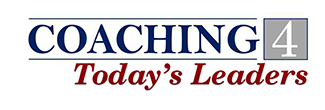
We tend to think that once we have the gig, the client, or the job, we can move on from selling ourselves and just do our work, but that’s not the case.
Sometimes the people who originally sponsored or hired you move on, and their replacements have no idea what coaching is or its value. Other times, people higher up change, or their priorities shift and you need to defend or justify your work.
In a previous post about coaching data, we discussed that while justification comes from a place of needing to prove something, demonstrating your worth comes from a deep inherent belief in your own value and the value of what you offer.
The best solution? Commit to never stop demonstrating your worth as a coach, and the worth of coaching itself.
Chapter 13 of Coaching From the Inside is dedicated to this topic. Several of the internal coaches I interviewed talked about how we can gather this data. As internal coach Brock Argue pointed out, you may have clearly communicated to your immediate boss or supervisor what coaching is and the value you have added, but your immediate supervisor then needs to be able to communicate that to their supervisor or board. You’ve got to help them help you!
In external coaching and other businesses, this translates to routinely educating and communicating with your client about what you are doing. In many cases you’ll also need to help them identify and interpret the direct benefits of your coaching.
This can be as simple as a pre- and post-survey questionnaire, or a rating from 1 to 10 of the progress they’ve made. Start by asking them to identify the area they want to work on. I’ll offer examples like communication, leadership, development, conflict, self-awareness, or self-care.
Once they’ve chosen their main focus, ask, “How effective are you with this now?” And then six months later, repeat the same score. These regular check-ins with your client are a great chance to discuss their progress and make any course corrections. This also provide data about the efficacy of coaching.
From there, we also want to think about gathering testimonials. The data might get someone sold on coaching; the testimonials sell them on you. Why would someone want to work with you? Show them!
Until coaching is as widely used and universally understood as other helping professions, it is up to us to continually educate or remind people about its value.

 The Search for Coaching Data
The Search for Coaching Data